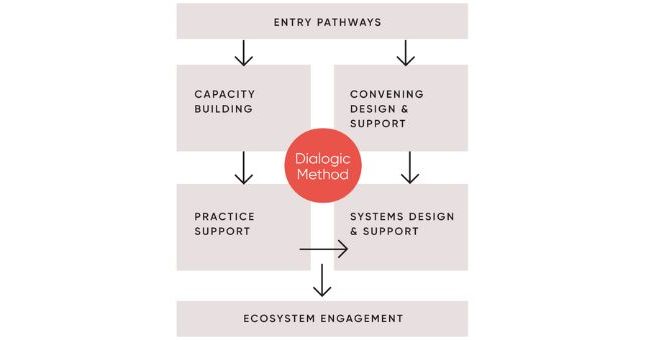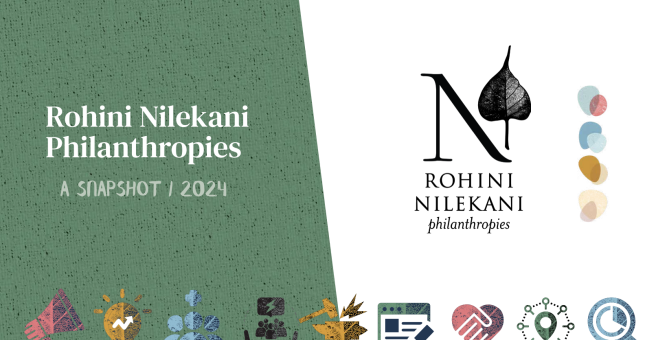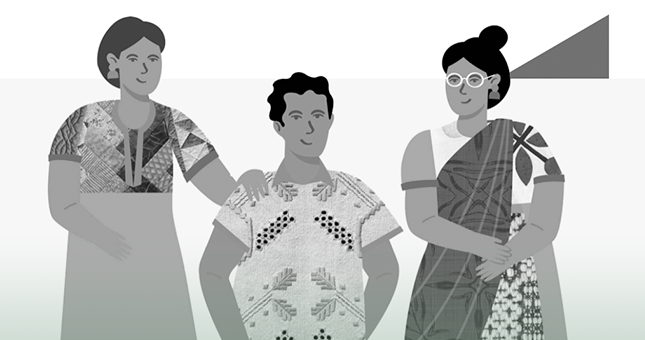Can the Dialogic Method be a means of empowerment, dispersed capacity for conflict resolution and problem-solving, and a way of creating community-oriented, win-win-win solutions?
These possibilities emerge from a recent (2022) research conducted by VikasAnvesh Foundation for Kshetra / Rohini Nilekani Philanthropies. The study, titled “Dialogic spaces for dispute resolution in the social sphere,” aimed to map an indicative and representative array of traditional and non-traditional community dialogic spaces in Indian society.
The Dialogic Method is a framework for designing using three fundamental principles: Value Creation, Non-binary Approach, and Self-determination, all of which come together towards creating sustainable solutions by parties to a problem situation.
Covering a variety of institutions that aimed at resolving conflicts through the use of dialogue in formal and informal spaces designed for the same, the study used a combination of literature survey and field research to study Gram Buras in Assam, Tribal communities in Odisha and Maharashtra, Khap Panchayats in Haryana, fishers community in Kerala, Flood affected communities in Bihar, Trader communities, Working Group for Women and Land Ownership (WGWLO) in Gujarat, Self-Help Group Federation in Jharkhand and Legal Services to migrants by Aajeevika Bureau.





